This month, The Day the Earth Stood Still turns 70.
A modest hit when it was released on Sept. 28, 1951, The Day the Earth Stood Still was directed by Robert Wise and stars Michael Rennie as Klaatu, who has traveled 250 million earth miles to deliver to our planet a message: Live with the other planets in peace, or extend earthly aggressions into outer space and risk annihilation.
The Day the Earth Stood Still was a plea for peace in the Cold War era of fear and paranoia. It may be best known for the robot Gort; low-tech by today’s CGI standards, and all the more terrifying for it.
The scene from The Day the Earth Stood Still where Gort appears (uploaded to YouTube by Movieclips)
Billy Gray was 13 years old when he was cast as Bobby, who unwittingly befriends Klaatu, hiding out from authorities in the boarding house where Bobby lives with his single mother (Patricia Neal). Klaatu will entrust to her his secret, as well as the three words that are sci-fi 101: “Klaatu barada nikto.”
Gray, 83, is the co-owner of BigRock Manufacturing, creators of and innovative guitar accessories. Gray is also known for portraying Bud for six seasons (and reunion made-for-TV movies) on the iconic TV series Father Knows Best. Requests for autographs, he says are “50/50” between Still and Best fans.
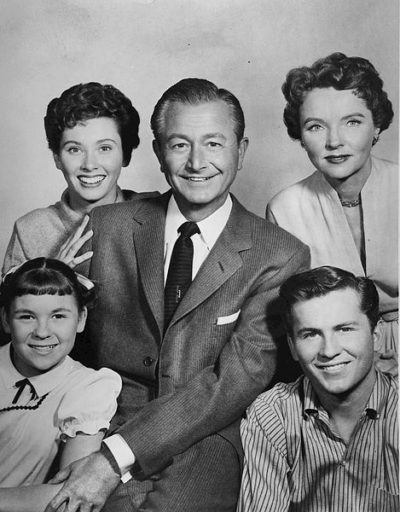
Director Wise’s beloved sci-fi classic has been ranked among the top 10 greatest sci-films of the 20th century by the American Film Institute. In 1995, it was inducted into the Library of Congress’ National Film Registry of America’s most “culturally, historically or aesthetically significant” films. Thanks to television broadcasts, it was “the best-loved science fiction film of the cold war era,” J. Hoberman wrote in The New York Times in 2008, the year in which an ill-received remake starring Keanu Reeves was released.
But according to Gray, the actors could not anticipate the film would become a classic. To them, he told The Saturday Evening Post, it was just another job.
Saturday Evening Post: Can you believe Day the Earth Stood Still is 70-years-old?
Billy Gray: (Laughs) The numbers go right over my head. In my mind, I’m about 19.
SEP: Yours is the typical Hollywood discovery story: You were spotted by a talent agent as a young boy running up and down the aisles of a theater.
BG: The agent was my mother’s agent. We all got together and she said she could probably get me some work. My mom said sure.
SEP: Tell me about your mother.
BG: My mother was Beatrice Gray. She was a dancer and was in Broadway plays. Then she went to Hollywood. She got parts in westerns opposite Johnny Mack Brown, Bob Steele and Hoot Gibson. Bob Steele was a little guy and she was five-foot-three, so they matched up quite well.
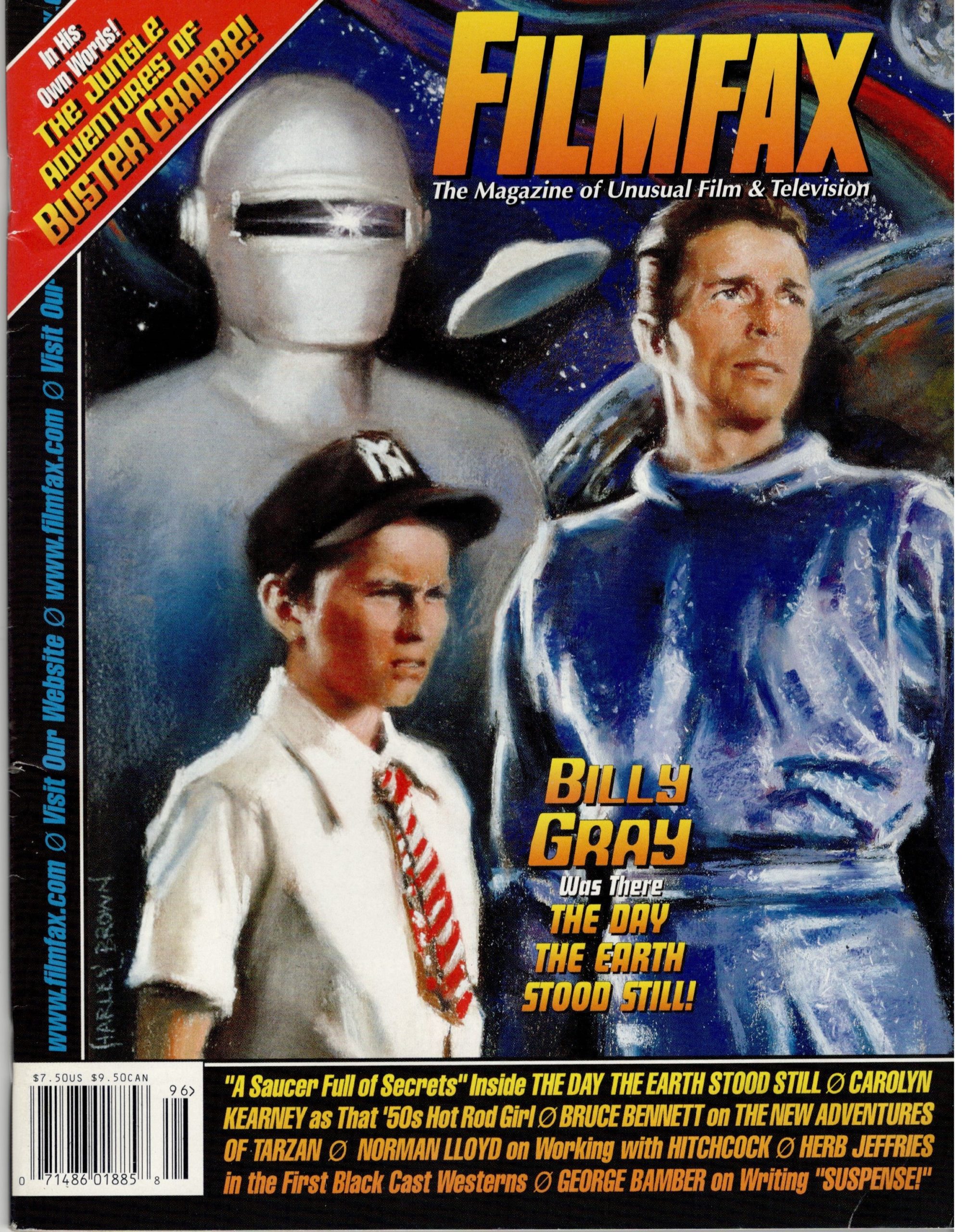
SEP: Did you want to be an actor?
BG: At five, I was up for pretty much anything. In the early days, they were all bit roles. They weren’t speaking parts. When I got to the point where I got lines to read, the only acting instruction I ever got was not to be ‘ready,’ as in ‘don’t sound like you’re reading.’ That was good advice. It held me in good stead.
SEP: You were quite prolific. In 1951 alone you were in seven films.
BG: (Laughs) 1951 was a hot year.
SEP: Do you consider Day the Earth Stood Still your big break? Do you remember anything about the audition?
BG: It was the biggest part that I had to that time period, but it was just another interview. I don’t think we did any testing on that one. Robert Wise made the call and I started work.
SEP: Were there any child stars you were up against for the role?
BG: You did see the same people over and over again at auditions. They were cattle calls and everybody would show up in their cowboy outfits or whatever. Gary Gray, who was no relation, was a year older than me. We ran into each other on a regular basis.
SEP: The Day the Earth Stood Still has a spaceman, an indestructible robot and flying saucer. That had to be a dream film for a 13-year-old.
BG: It really wasn’t. I didn’t have a particular fascination with science fiction. Being on movie sets, you get used to peculiar things; peculiar is kind of regular.
SEP: What was your favorite acting experience to that time?
BG: Bud Abbott and Lou Costello Meet the Killer, Boris Karloff. My mother was in that movie as well. We didn’t have a scene together. She was in a situation where she yelled, ‘Fire.’ My part was being an obnoxious little kid, which was very easy for me.
SEP: Unlike your role in The Day the Earth Stood Still. That movie doesn’t work as well as it does if the audience doesn’t buy your friendship with and humanizing effect on Klaatu.
BG: I’m the audience surrogate in a way.
SEP: What was it like to work with Michael Rennie (Klaatu)?
BG: He was an established professional and he acted that way. There was nothing untoward about him at all. I remember he was very solicitous to my mother. Kid actors had to have a parent or guardian on set all the time. He was forever getting her a chair or coffee. I don’t know if he made a move on her, but I did notice he gave her an awful lot of attention.
SEP: Did you get along with Patricia Neal?
BG: Over the years, they awarded Robert Wise for his accomplishments. Patricia and I were often invited. I remember her telling this story: It was about the scene in which she and Klaatu are in the cab and he is giving her instructions on what to do if he should get hurt. That’s the scene where he tells the command for Gort, ‘Klaatu barada nikto.’ She said that she would get the giggles every time she had to say those words. Michael Rennie asked her if that was the way she was going to play the scene, and she said, ‘No, I’ll hold it together when we film.’
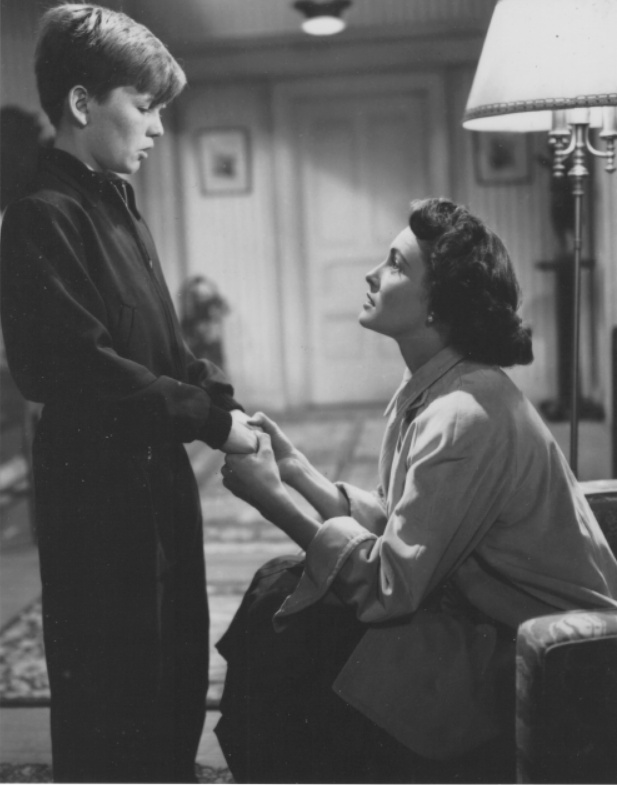
To her, ‘Klaatu, barada nikto’ was so silly. Now, it is considered to be among the most famous lines in science fiction. She was a sophisticated lady. She had no idea the movie would be a classic. It was just another job for her.
SEP: You didn’t have any scenes with Sam Jaffe (Professor Barnhardt, who becomes Klaatu’s confidant and ally), but did you have any interactions with him on set?
BG: I heard a story about his casting. Robert Wise wanted to use him, but he was on a blacklist. He had refused to name names for the House Un-American Activities Committee. He was not as cooperative as they desired him to be, and so he was on the ‘Don’t hire’ list. That word got back to the producer, Darryl F. Zanuck, and Zanuck basically gave the government the finger and said he was going to go with him.
Later on, I heard a similar story about Jane Wyatt. She played my mother on Father Knows Best. Because she flew back on a plane with a bunch of luminaries to complain about the Committee, she got her wrist slapped pretty good. She couldn’t get work for a couple of years. That Father Knows Best job was the first acting gig since making that trip.
SEP: What is the favorite of your scenes in the film? Mine is when you come back from following Klaatu to the spaceship, and your mother insists to you that you’ve been dreaming. But then she observes your shoes are wet, and you say, “The grass was kinda wet,” which unnerves her.
BG: My favorite part is just before that where she says, ‘You didn’t really see the space ship,’ and I say, “I’d never call you a liar.’ I choke up when I think about it.
SEP: Did you keep any props from the movie?
BG: I did purloin a few of Klaatu’s diamonds, but over the years I’ve lost track of them. They exist, but….
SEP: Did you see the 2008 remake?
BG: I’ve caught portions on television. People would mail me reviews of it; it really got raked over the coals. When I heard the movie was going to be redone, I did say that I would like to have a cameo in it. I had been out of the business for a while, but I managed to get an agent and told him I wanted to throw my hat in the ring. He got me an interview with the casting people. They gave me some sides (script pages) to read, and they were for the part of Professor Barnhardt. I said I was just looking to be a cab driver or something (laughs). I don’t know if they took me seriously, but I did read for the role. I thought I should go the extra mile, so I spent $100 on an opera singer who has a sideline of teaching dialects. He gave me tips on how to have a slight accent. I never heard anything back and it’s just as well.
SEP: It’s a little frightening how relevant The Day the Earth Stood Still is. I remember when Space Force was signed into law in 2019, I immediately thought that this was exactly what Klaatu warned us about.
BG: It’s amazing that the movie’s message is just as important today as it was then. I think it would be helpful if it was required viewing in schools. The times are still perilous.
Featured image: Illustration (detail) of Bobby and Klaatu used on the cover of Filmfax magazine (courtesy Michael Stein, Filmfax, illustration by Harley Brown)
Become a Saturday Evening Post member and enjoy unlimited access. Subscribe now
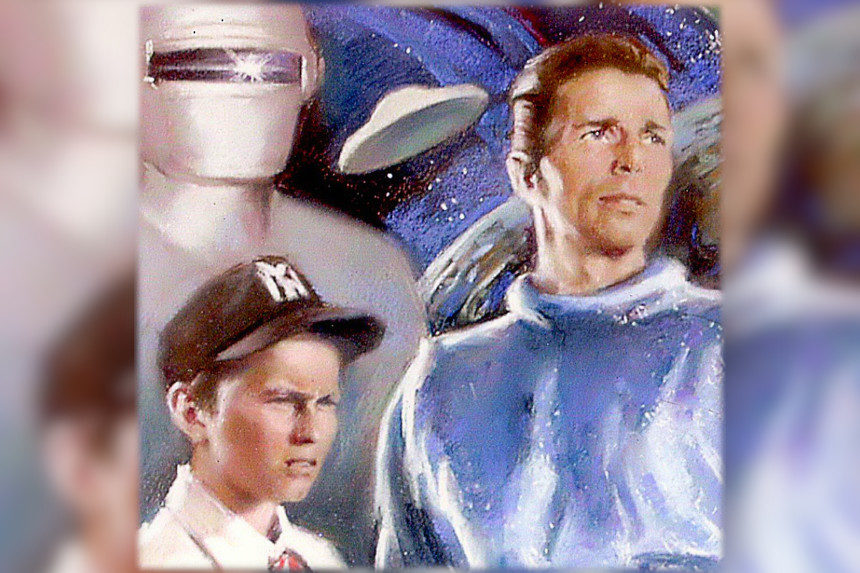
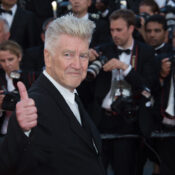

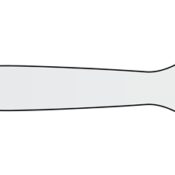
Comments
Interesting, insightful feature on a timeless and timely classic film. I want to see it in its entirety soon, but appreciate the clip here. It’s ‘high tech’ enough as it is to get the point across very well. For the past 30+ years everything has been reduced to the same mind numbing, brain-dead overkill garbage called “special effects” when they’re not at all. They’re standard crutches, and the resulting films are an indistinguishable mess.
The reason this film is so special is that is was made at that time, with those writers, producers, directors and stars with the sense and sensibility of that time. Even up to the mid-70s, but not after that. The humanity in this film is quite apparent just from the interview with Billy Gray. You asked him good questions Donald, thank you.